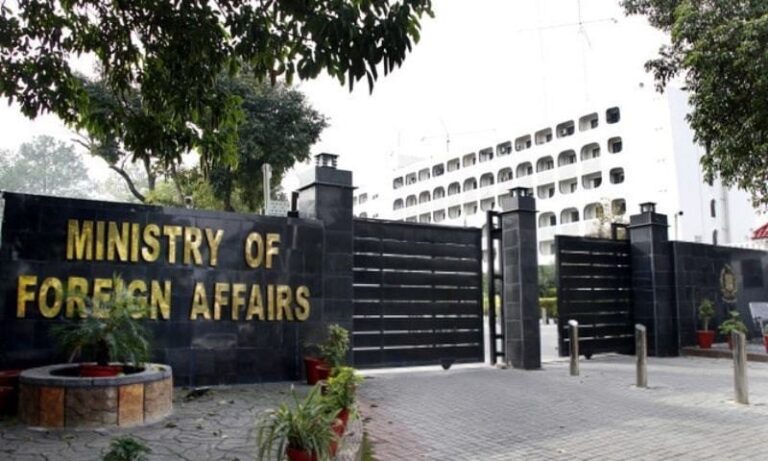No decision has yet been taken to scrap bilateral agreements with India, Pakistan’s foreign ministry said on Thursday – a day after Defence Minister Khawaja Asif claimed that the 1972 Simla Agreement between the two hostile neighbours was a “dead” document.
Responding to media queries, a senior Foreign Office official said that while India’s recent actions and statements prompted internal discussions, Pakistan had made no formal or conclusive move to annul any of its bilateral accords with New Delhi.
“At present, there is no formal decision to terminate any bilateral accord,” the official stated, indicating that the existing bilateral agreements, including the Simla Agreement, remain in effect.
Read more: Asif declares Simla agreement a ‘dead document’
The clarification came a day after Defence Minister Khawaja Asif, during an interview with a private television channel, said the Simla Agreement had lost its relevance and validity due to India’s recent unilateral actions.
“The Simla Agreement is now a dead document. We are back to the 1948 position, when the United Nations declared the Line of Control a ceasefire line following the ceasefire and resolutions,” Asif said. He argued that the bilateral framework agreed upon in 1972 had collapsed, and future disputes would have to be addressed through multilateral or international channels.
Referring to the first Indo-Pak war and the resulting UN-mediated ceasefire, the minister asserted that India’s steps — particularly the revocation of Article 370 in Jammu and Kashmir in 2019 — had undermined the foundations of bilateral engagement.
He also questioned the current status of other key agreements, saying: “Whether the Indus Waters Treaty is suspended or not, Simla is already over.”
In a pointed warning, the defence minister commented on the broader security situation, saying the threat of conflict with India was still there. “Pakistan does not desire war, but if it is imposed on us, our response will be even stronger than before,” he warned.
Read more: Simla Agreement 1972: Key points and exit implications
The Simla Agreement, signed in 1972 in the aftermath of the 1971 Indo-Pak war, committed both countries to resolving their disputes through peaceful and bilateral means. The accord converted the ceasefire line in Jammu and Kashmir into the Line of Control (LoC) and obligated both sides to refrain from the threat or use of force, while respecting each other’s sovereignty and territorial integrity.
Khawaja Asif’s remarks came against the backdrop of New Delhi’s recent announcement to unilaterally suspend the Indus Waters Treaty (IWT), followed by unprovoked strikes inside Pakistani territory last month—developments that triggered heightened military tensions between the two nuclear-armed neighbours.
In the wake of India’s move, Pakistani authorities reported a sharp decline of 91,000 cusecs in water flows from India into the Chenab River as the Indian Prime Minister, Narendra Modi, has continued to issue hawkish statements, suggesting the use of water as a strategic weapon against Pakistan.
Days after announcing the suspension of the treaty, PM Modi declared that water previously flowing to Pakistan would now be retained for domestic use, asserting that Pakistan would no longer receive water from rivers over which India claims rights.

